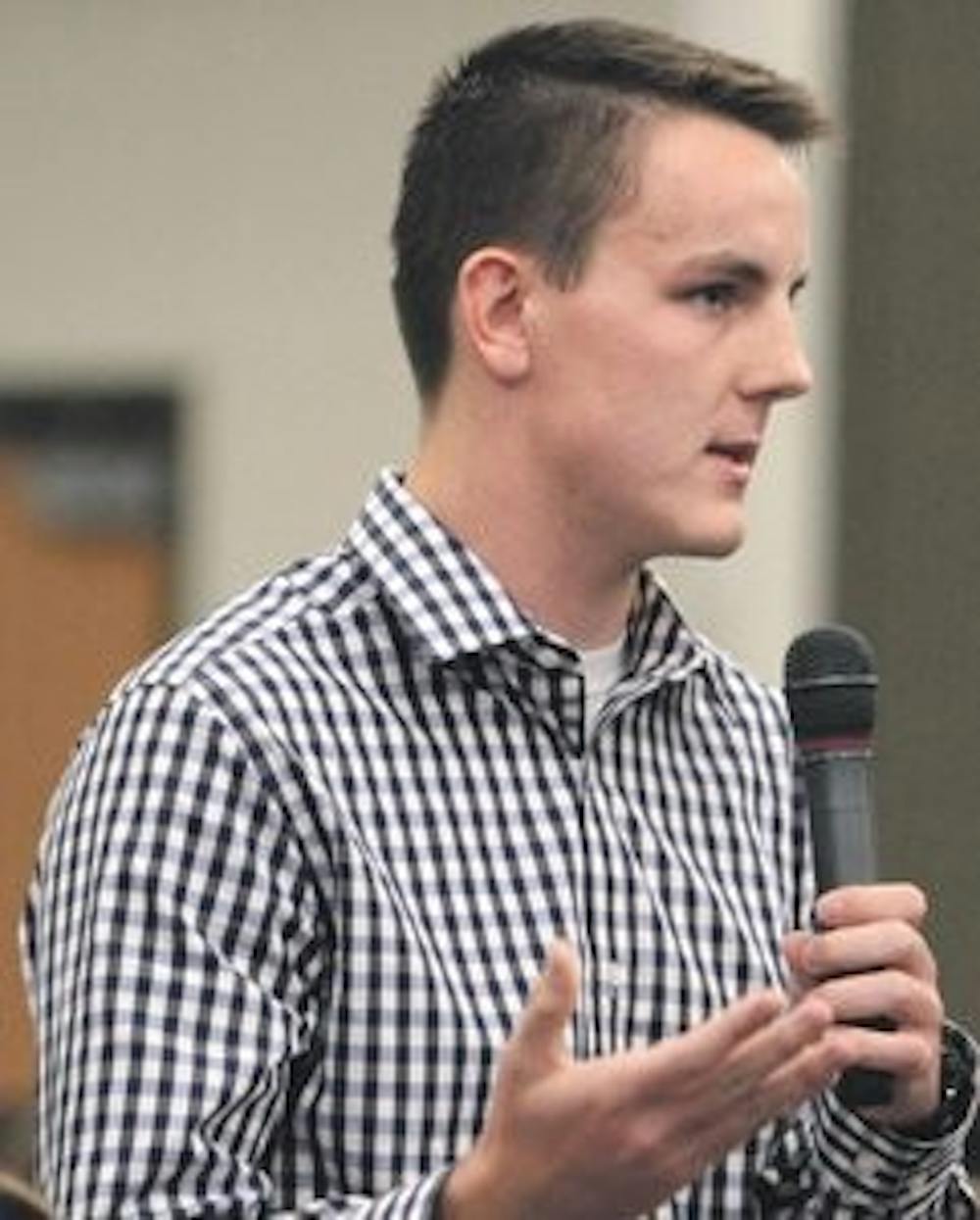Five Alabama legislators spoke on higher education, legislative processes and the economy in a panel sponsored by an SGA event called Capitol on the Plains.
In attendance were Speaker of the House Mike Hubbard, Rep. Mary Sue McClurkin, Rep. Pebblin Warren, Sen. Tom Whatley and Sen. Phil WIlliams.
"In order to be a good advocate, you have to do your homework," Warren said. "You got to know, number one, what you want to advocate, and you got to also know what your true feelings are."
Warren has 38 years of experience in higher education, with 30 years in student services.
"So often, people jump on other folks' bandwagon and they don't know what the real issues are," Warren said. "You don't always have to agree with everybody, but as long as you can work cooperatively and share your ideas, you can get things accomplished."
The Rolling Reserve Act, put in place Oct. 1, was one issue discussed at the event.
The act cuts the state education budget by millions of dollars at the beginning of the year in order to avoid proration, mid-year budget cuts that occur when money runs out.
"This was overdue," McClurkin said. "We needed to do something to keep our budgets from being prorated. That affects not only tuition, but a lot of other things."
McClurkin said budgets prorated nine times during the last 30 years.
Under the Rolling Reserve Act, the projected budget is based on a previous 15-year average of revenue to the state. In previous years, the budget was based on projections of revenues.
McClurkin said the Rolling Reserve Act allows the budget to have solid numbers and not wishful thinking of revenues.
"In the way it would affect tuition costs is that it would help them remain more stable," McClurkin said. "I don't know that our budget totally affects your tuition costs, because the state does not fully fund higher education."
Students who attended were able to ask questions of the legislators after the panel to gain more insight into current state policy.
"It's good to know we have a high value on education; one stat said we have one of the highest education budgets in the country," said James Sappington, junior in marketing. "It's good to know that the state is making proactive measures to reduce the debt and they are being responsible with their money."
Alabama is one of only three states in the entire nation that has two separate budgets. Education is funded by one budget, and the General Fund covers all other items.
"The Rolling Reserve that has been put in place has solidified and stabilized the educational side," Williams said, as a member of the General Fund Committee. "It is showing positive growth and showing things we hoped it would; the general fund, not so much."
Williams said there are initiatives underway to streamline the government and effectively use the revenues.
"We literally spend money sometimes and can't even tell where it is going, because it is not set up in what we call a business-like or efficient method," Williams said.
Williams said he is a Senate liaison to the Information Technology Committee. He said he will present his findings on revenue loss in terms of technology and Internet taxes.
"We can't tell where all the money goes," Williams said. "Think about it like this: what if you were going to set up a budget for your household, so you would know what you had every month, but you had no idea what you spent on your car? That's the way we are with IT."
Williams said the IT costs are blended into other budgeted items and are difficult to keep track of because of budget codes. He said he plans to have unified codes for buying computer software and equipment.
He said every department pays separate license fees for computer software and equipment, but if the state had a unified licensing process, millions of dollars would be saved.
"Our first priority is to pay back the money to the Alabama Trust Fund," Hubbard said. "That's not something we take lightly. I took it as a boost of confidence that people trust that we are going to do the right things with the money."
The Alabama voters approved a constitutional amendment last month that allowed money to be transferred from the Alabama Trust Fund to the General Fund for three years.
Hubbard said although not in the legislation, there is a plan to repay the money transferred from the Alabama Trust Fund. He said there is a 10-year plan, but he hopes to pay back the money by 2014.
"Governments really do not create anything, certainly don't create jobs or wealth," Hubbard said. "The private sector is what creates the jobs and the wealth."
Hubbard said the three areas he particularly wants to focus on in the upcoming legislative session are public safety, IT and streamlining the Legislature.
Audri Larsen, freshman in biochemistry, said the panel was interesting because it showed the difference between policy in Alabama and her home state, Tennessee.
"We are the ones who will be affected by the future, and if we don't pay attention to it early on, then we won't know what's going on when we get old enough when things affect us," Larsen said.
Do you like this story? The Plainsman doesn't accept money from tuition or student fees, and we don't charge a subscription fee. But you can donate to support The Plainsman.





